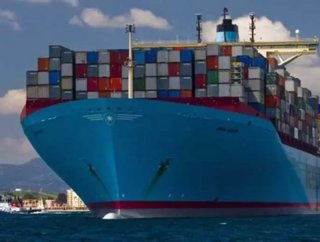Maersk warns of container shipping overcapacity

Sometimes, expanding too quickly can be a bad thing. The global shipping industry learned that lesson the hard way.
A.P. Moller-Maersk, the world’s largest container shipping company, cut its full-year forecast amid fears of overcapacity, a problem that’s expected to plague the industry. Maersk’s overall profit fell 82 percent to 1.64 billion Danish kroner, down from 9.2 billion kroner last year.
The container unit of Maersk’s operations particularly suffered, as the company lost 1.58 billion kroner, which was in stark contrast to the 5.9 billion kroner profit from last year.
Shipping problems in Maerk’s operations emulate an industry-wide trend of falling rates and rising fuel costs, a dangerous combination. Rates for container shipping at Maersk fell 12 percent, while fuel costs rose 48 percent.
The increase in fuel costs was something shipping companies have been planning on tackling for quite some time. The overcapacity is what’s made the container shipping industry turn south. With a bustling global economy in the mid 2000s, shipping companies like Maersk invested heavily in building up a fleet that could handle what was expected to be a continued economic surge.
SEE OTHER TOP SHIPPING STORIES IN THE SUPPLY CHAIN DIGITAL CONTENT NETWORK
Top Container Shipping Lines in the World
Container shipping capacity set to outgrow demand
November’s issue of Supply Chain Digital is here!
The global financial crisis that started in 2008 scaled back shipping demand, however, and companies like Maersk have been forced to scale back shipping rates to deal with flooded competition because of the industry-wide overcapacity problem.
Despite those concerns, Maersk CEO Nils Smedegaard professed optimism talking with the Wall Street Journal.
“We are standing at a quite solid bottom at the moment,” Smedegaard said. “The high season just ended, so we don't expect volume growth in the next months. Realistically, we will continue to see low rates, but I find it difficult to believe that we won't experience some rates improvement during the course of 2012.”
Smedegaard said that Maersk plans on operating the sea at full capacity, which would indicate that a rate war could be in order.
“Some capacity will have to come out. We're not telling competitors what to do, but this is not an environment for small operators with weak balance sheets,” Smedegaard said.






